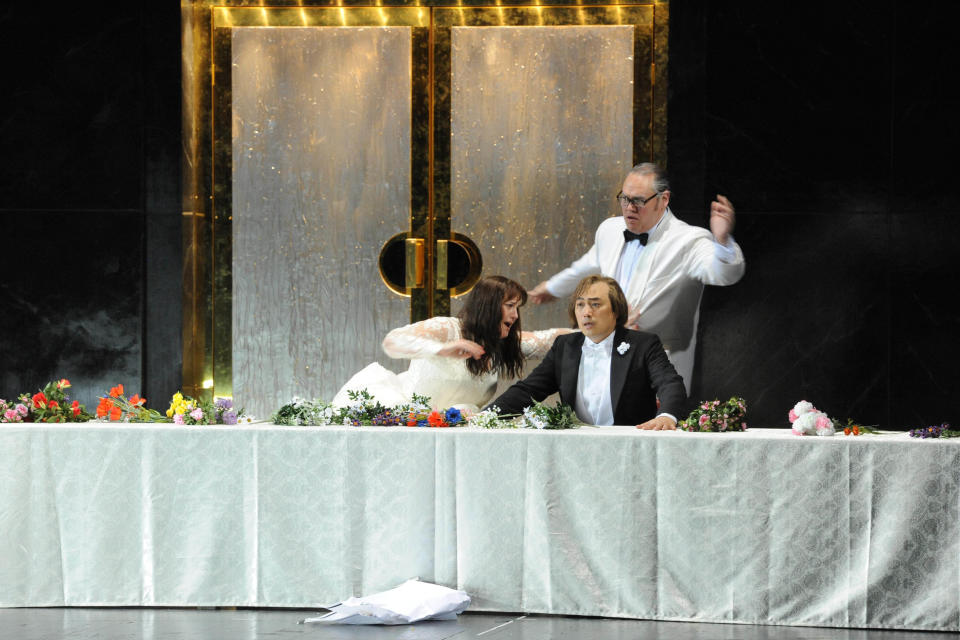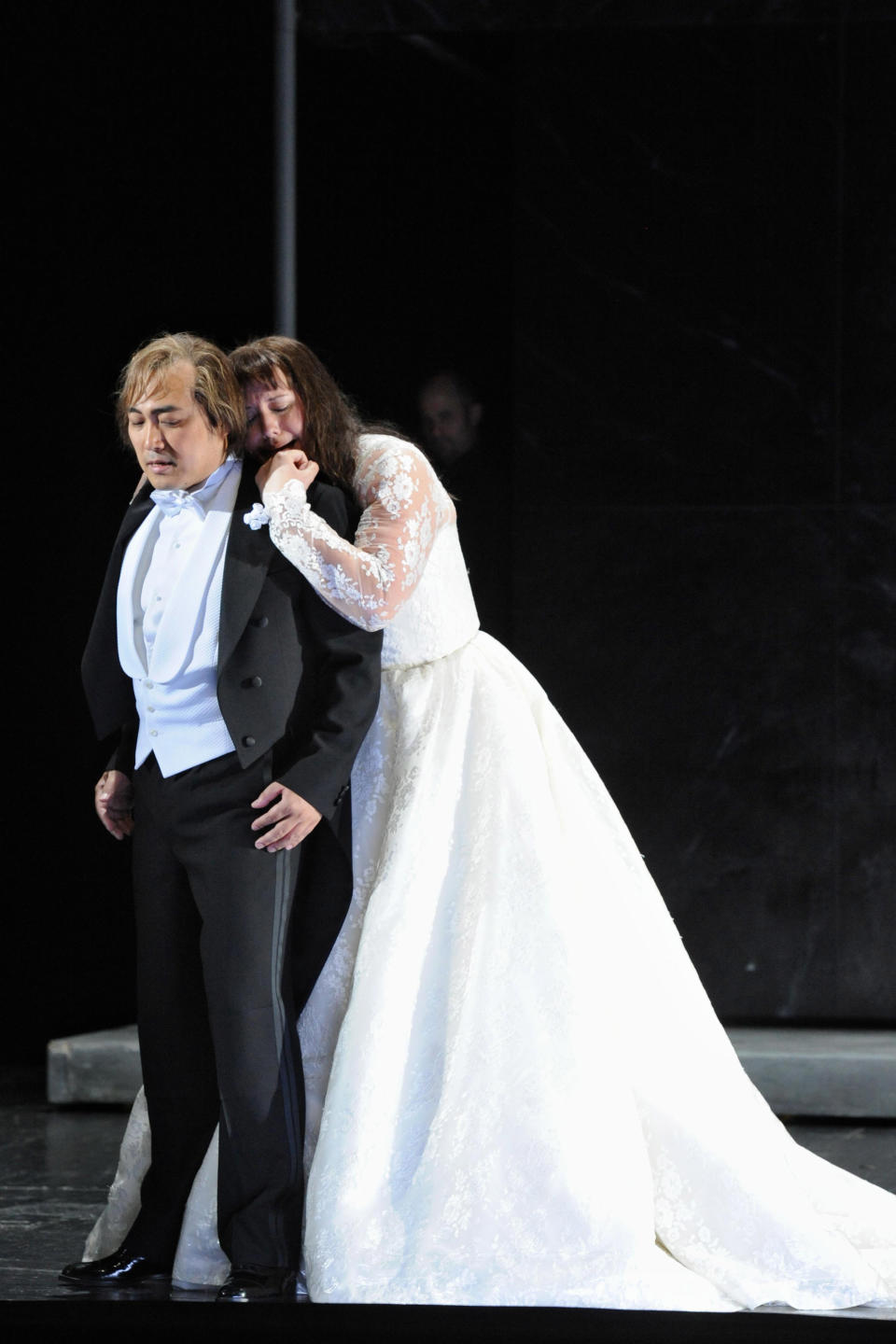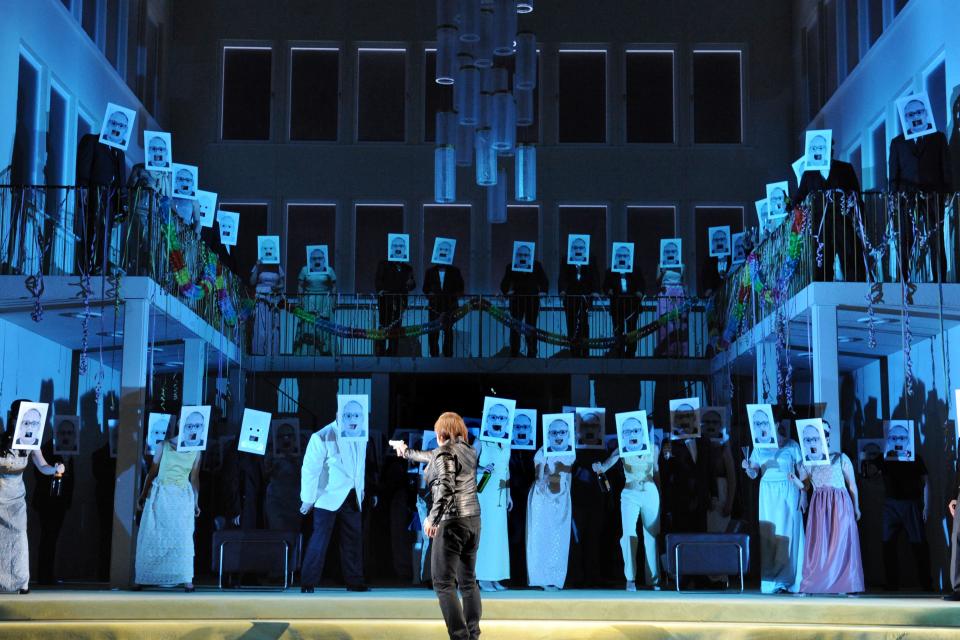Verdi's 'Les vepres' gaining new attention
KATONAH, N.Y. (AP) — It's been called the "missing link" among Giuseppe Verdi's operas, composed right after his three mid-career mega-hits — "Rigoletto," ''Il Trovatore" and "La Traviata" — and pointing the way toward the masterpieces of his later years.
Why "missing"? It's not as if "Les vepres siciliennes" ("The Sicilian Vespers"), first performed in Paris in 1855, was lost or had to be reconstructed by scholars. Yet, despite its importance in the Verdi canon, the opera has remained a relative rarity.
Now, in the great Italian composer's bicentennial year, "Les vepres" is getting renewed attention, with performances this summer in Frankfurt, Germany, and at the Caramoor Festival outside New York City, plus a much-anticipated production at London's Covent Garden this fall.
"Those three works right before it are shorter, perfectly proportioned, the summing up of everything he already knew how to do," said Will Crutchfield, Caramoor's director of opera. "After that, he felt a need for taking in some other possibilities."
Paris in those days represented the pinnacle of success for an opera composer, with lucrative contracts and a history of productions that were heavy on spectacle, like Rossini's "William Tell" and the operas of Giacomo Meyerbeer.
"He wanted something with big, grandiose effects, and that's what he did," Crutchfield said in an interview after a rehearsal this week. "And he did a great job of it. The music is fantastic."
Indeed it is. Beyond the best-known numbers, like the heroine's bolero and "Et toi, Palerme" for the bass, the entire score teems with inspired arias, duets and ensembles.
Verdi enlisted a frequent Meyerbeer collaborator, Eugene Scribe, to write the libretto, based on historical events of the 13th century when the Sicilians rose up to overthrow their French rulers. Tradition says the rebellion was signaled by the ringing of bells for sunset prayers known as vespers. In the opera, the bells mark the wedding of the lovers Helene and Henri, who support the uprising even though Henri is the son of the French governor, Montfort.
"I think it's the most political opera that Verdi wrote," said Norbert Abels, chief dramaturg of Oper Frankfurt, where a new production has been drawing packed houses. "Sure, there's a love story, but it's not the main point. What the opera really is about is the connection of historical and family catastrophe."
Verdi was in his early 40s and had composed 19 operas when he wrote "Les vepres." After that his output slowed — in his remaining 45 years, just eight more operas. But most are on a level surpassing anything he had done before.
When the Metropolitan Opera first performed "Les vepres" in 1974 (in Italian as "I Vespri Siciliani,"), critic Irving Kolodin wrote in The Saturday Review that it "emerges as . a missing link in the chain between 'La Traviata,' which precedes, and 'Un Ballo in Maschera,' which follows."
Crutchfield agrees, and points to another opera that "would have been impossible" without "Les vepres" — "Don Carlos," which premiered in Paris 12 years later and is now regarded by many as Verdi's profoundest work. Crutchfield will lead a performance of that at Caramoor on July 20.
Ironically, the very qualities that most drew Verdi to grand opera are the ones that make "Les vepres" difficult to perform.
"It's long, it's hard, it's expensive," Crutchfield said. "And for every tenor who can sing Henri there are 10 who can sing Alfredo in 'Traviata.'"
Still, companies are finding ways. The Covent Garden production, opening in October, will mark the house debut of Stefan Herheim, a Norwegian whose revelatory stagings have made him one of the most sought-after directors in Europe. Soprano Marina Poplavskaya and tenor sensation Bryan Hymel star as Helene and Henri. Initially, the entire half-hour Four Seasons ballet was to be included, but those plans fell through.
The Frankfurt production, starring Elza van den Heever as Helene, Alfred Kim as Henri and baritone Quinn Kelsey as Montfort, trimmed the score a bit and updated the action to a populist revolt against a modern-day police state.
Crutchfield, whose semi-staged production starring Angela Meade and John Osborn will be performed Saturday, argues strongly against cuts, though he is allowing a few in the ballet. His performance is expected to clock in at just under four hours.
"The few times I've seen it have been in heavily cut productions, and you just don't feel that sure hand of Verdi the musical dramatist," Crutchfield said. "If you want to hear that . you've got to be willing to sit down and stay for a while."




